Divya Dutta has carved a niche for herself through a career that spans across genres and languages. From her memorable debut in Train To Pakistan to her impactful roles in Veer Zaara, Delhi 6 and Bhaag Milkha Bhaag, Divya has consistently chosen roles that resonate with audiences on a profound level. Beyond the silver screen, Divya is a champion for recognising women’s contributions and the importance of self-love in relationships. Her candid observations on societal dynamics reflect not only her wisdom but also her commitment to portraying authentic, relatable stories that resonate with audiences worldwide. Our interviews have always felt like conversations between friends rather than work because of the way she connects with you on all fronts. Excerpts from an engaging chat with the fine actress.
How was it working with Tahira Kashyap in Sharmajee Ki Beti?
When I was approached for the film, the producer insisted I hear the story from Tahira. She is so skilled at narration that it felt like I had watched the entire film. They executed it well and were clear about their requirements from the film and its actors. The best thing was we had a lot of fun on the set. It’s important not to feel pressured and to enjoy the work. I found my role interesting.
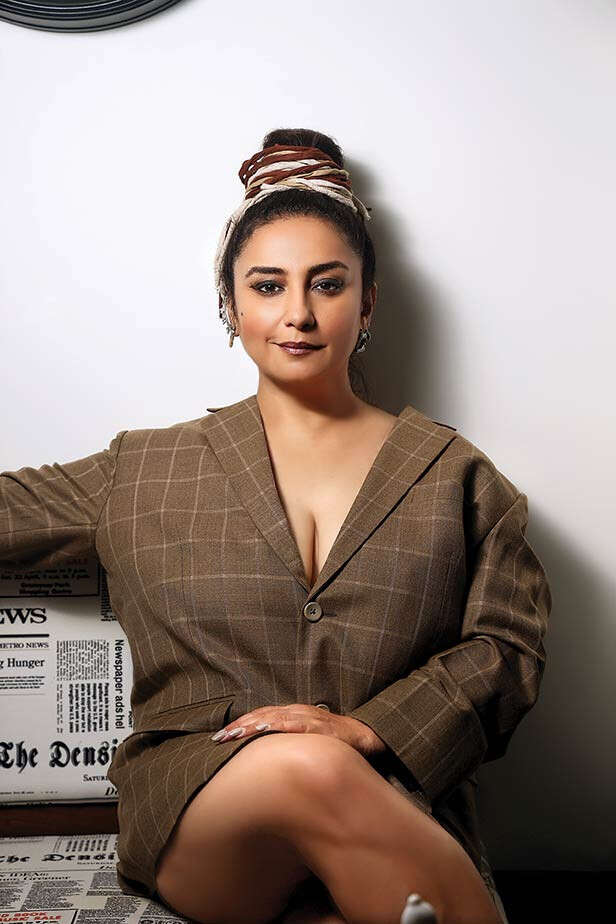
Your character, Kiran Sharma, battles loneliness after moving to Mumbai. Did you face a similar situation when you left a small town in Punjab for the metro city?
Kiran didn’t know what to do other than manage a household. I came to pursue work, so I was prepared. Nevertheless, everyone experiences a journey of loneliness. Even with help, you must fight your own battles. The city teaches you self-reliance.
Did you resonate with the character of Kiran Sharma?
I believe we all have a Kiran Sharma within us—vulnerable, somewhat childish and as time passes, we start to limit ourselves due to societal pressures. In today’s social media dominated world, this is everyone’s story. I’ve wanted to play such a role for a long time. Tahira made me do everything in the film, even turning me into a superwoman. We both believe in having complete fun.
Do you feel that husbands often take their wives for granted in our society?
Yes, it’s true. Balancing these dynamics in relationships is crucial. Women are multitaskers but often lack appreciation. Even a small gesture like expressing gratitude or saying “thank you” or “I love you” can boost a woman’s energy significantly.
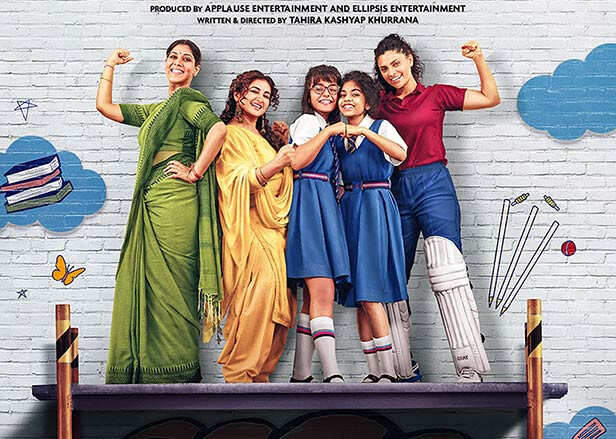
What is one thing a woman should never tolerate in a relationship?
Disrespect. Self-love is crucial. Continuously compromising oneself to sustain a relationship is unhealthy.
You started your career with Train to Pakistan. How tough was it to make your mark in this industry?
No one’s path is straightforward. I pursued acting as my career goal. In earlier times, actresses like Shabana Azmi, Deepti Naval and Smita Patil excelled in both artistic and commercial cinema. However, by the time I entered the industry, such versatility was less common. The blending of these cinematic styles led me to seek unconventional roles, such as those in Veer Zaara and Delhi-6, which were ahead of their time. Throughout my journey, I have consistently aimed to select the most compelling roles in each film. It’s gratifying when people affirm that they trust my film choices and enjoy the outcomes. This feedback validates that I’m on the right track. Sometimes I’m labelled as an unconventional star, other times as a distinguished actor—a distinction I appreciate. I’ve never confined myself to a single image. When I look in the mirror, I find my appearance intriguing, much like the diverse roles I embrace. I value the freedom to choose my roles.
What was the defining moment of your life?
I always wished Yashji (Yash Chopra) would introduce me in his films and he did so unexpectedly with Veer Zaara. Bhaag Milkha Bhaag gave me global recognition.
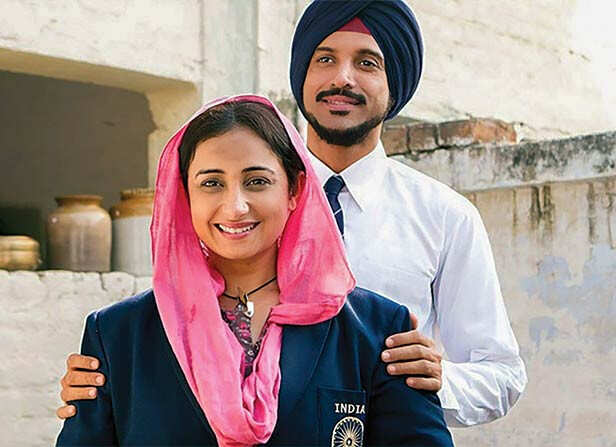
What are your memories associated with Yashji which you still cherish?
Yashji’s depiction of romance in his films was unparalleled; no one else could capture it in the same manner. He was truly ahead of his time, as evidenced by his earlier works such as Waqt, Kabhi Kabhie, Lamhe, and Chandni, which I grew up watching. When I finally met him, I discovered him to be a simple, humble, lovable and fascinating person. We shared a love for sweets, a bond reinforced by our Punjabi roots. Even after wrapping up Veer Zaara, he encouraged me to visit him. And I often went to his office to share details of my life. This connection made me feel like I had someone I could call my own in this unfamiliar city. In this industry, Yashji and Amitabh Bachchanji are the only two who never forget people’s birthdays, which adds to their legendary status.
Do you think the industry is need-oriented?
Indeed, it’s a fact. When they require your services, you’re put on a pedestal, but if not, you’re overlooked. I make a point to reach out to former colleagues who are no longer active and have aged. I enjoy conversing with them. Connecting with talented individuals in this industry is a gratifying experience. One important lesson I’ve learnt is that you encounter diverse personalities here. By identifying like-minded individuals with whom you can form bonds, navigating this environment becomes more manageable.
Do you feel cinema has changed in recent years, especially with the rise of OTT platforms?
OTT has shifted focus to characters over traditional heroes and heroines. Women now get roles with many layers, not just glamorous ones. It’s positive.
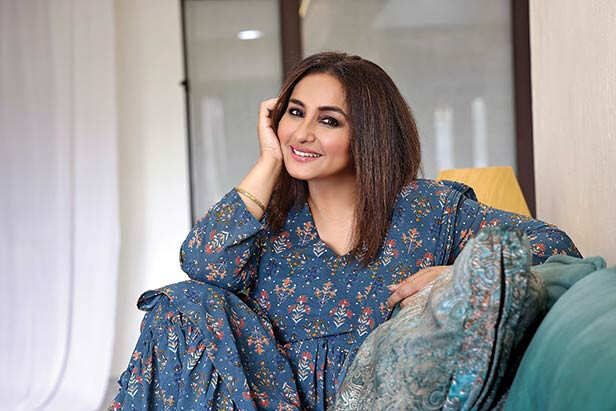
You were close to your mother. How did you cope with her loss?
Dealing with her loss took considerable time. After her passing, I fell into depression. In my mother’s time, she would refer to it as “ghabrahat”. It’s only now that we recognise it as depression; at that time, it wasn’t well understood. Fortunately, my brother is a hypnotherapist, so I received the support I needed at home, which helped me through a difficult phase. It’s crucial not to underestimate the importance of mental health, as many of our challenges stem from it. I haven’t completely overcome the grief; rather, I’ve learnt to live with it. Even now, when I feel lost, I find solace in remembering and talking to her.
Any advice from your mother that you cherish?
My mother was my closest companion. I have drawn my life lessons from her. She used to say to accept life as it comes, without denying its form. In the past, when I faced decisions about roles, I often hesitated. My mother’s advice was to commit fully to whatever role I took on, so much so that roles would eventually be tailored for me. That’s exactly what transpired after Veer Zaara.
Now that you’re established, are you content with life?
I’m not greedy but I’ve always eager for work. Maintaining excitement
is essential. Tahira jokes I act like a newcomer and I embrace it.
Is there something about you that hasn’t changed?
I’ve retained my inner child. My niece and nephew think I’m younger than them and I like that.
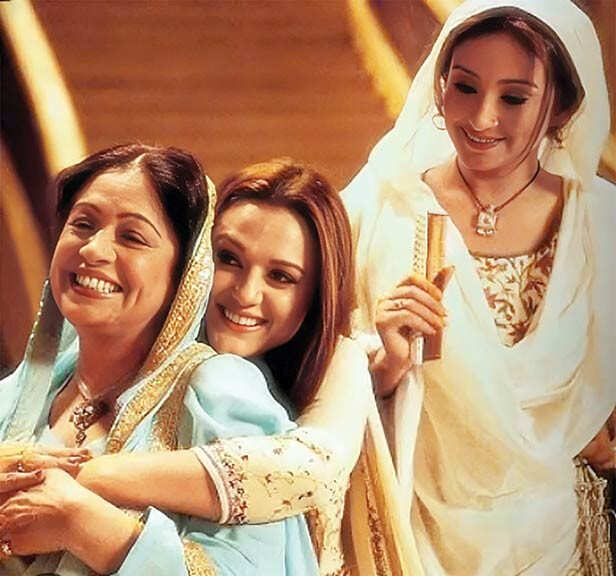
You write poems and are an author. What inspires you?
Writing allows me to express strong emotions. During Covid, I wrote a poem anticipating better times. My book, The Stars In My Sky, is about those who influenced my life.
What’s your take on life?
Life is full of surprises. I’m constantly prepared for them. Similar to films, life presents numerous twists and turns and it’s important to embrace them just as you do in movies. That’s the essence of life. In this world, you’ll encounter diverse individuals; the key is to find those who resonate with you, making life smooth sailing.
What advice would you give to newcomers today?
If you are really passionate about films, then go for it. But if you are coming
here just for glamour, then you shouldn’t. Because working in films is definitely not a bed of roses. To be a part
of this film industry you need to have these 3 Ps – Passion, Patience and Perseverance. Women are multitaskers but often lack appreciation. Even a small gesture like expressing gratitude or saying “thank you” or “I love you” can boost a woman’s energy significantly. In earlier times, actresses like Shabana Azmi, Deepti Naval, and Smita Patil excelled in boh artistic and commercial cinema. However, by the time I entered the industry, such versatility was less common.


